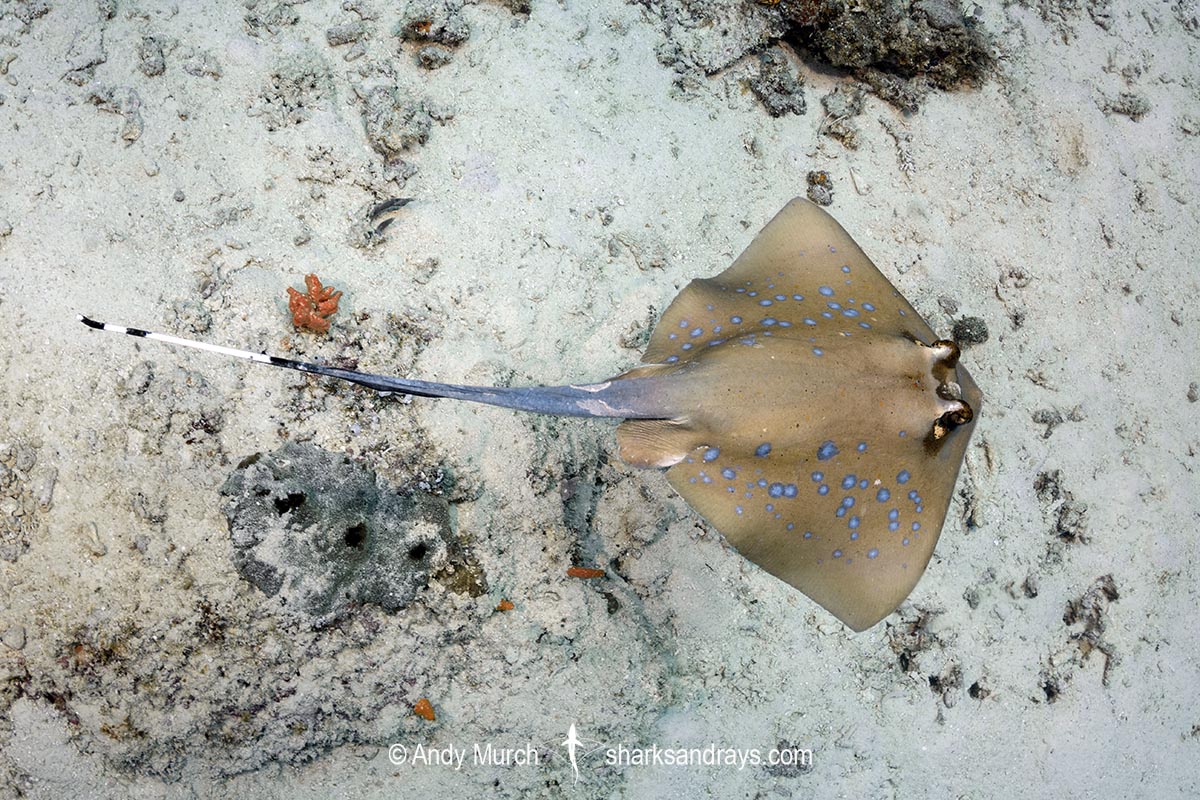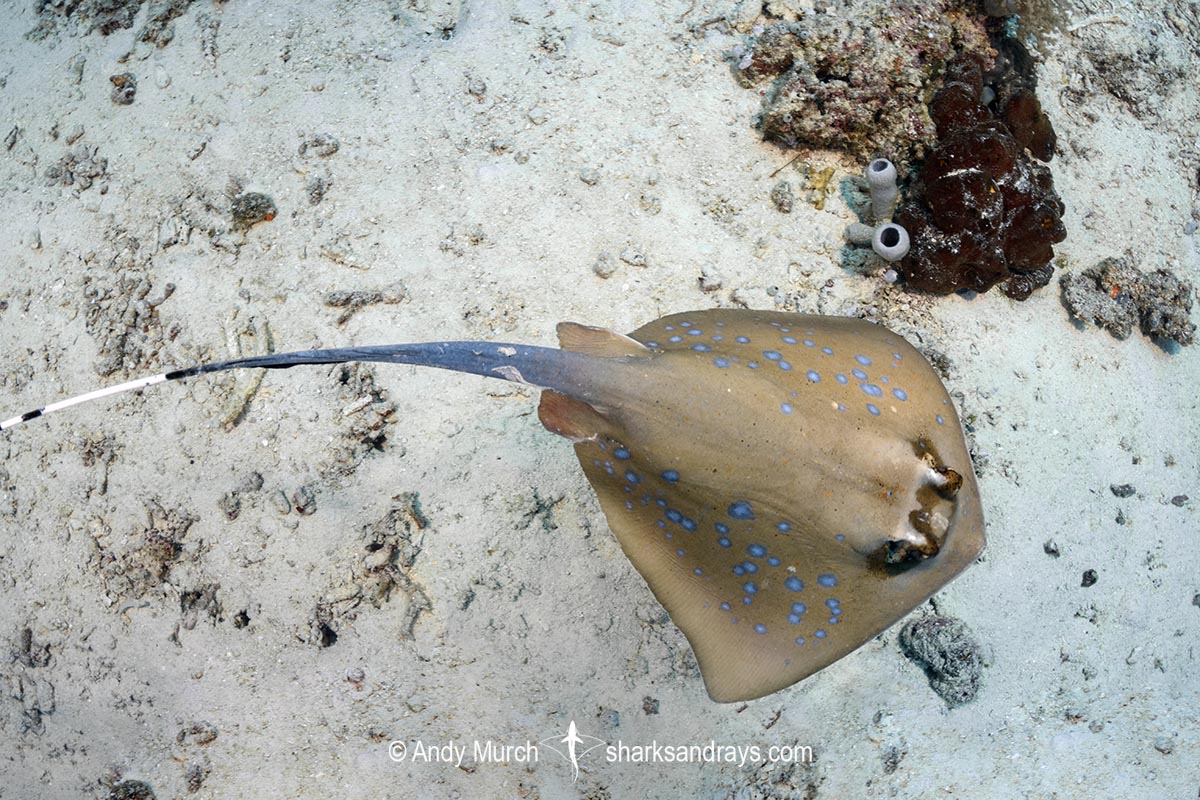Common name(s)
Moluccan Bluespotted Maskray, Bluespotted Stingray.
Binomial
Neotrygon moluccensis.
Synonym(s)
Neotrygon kuhlii, Dasyatis kuhlii.
Identification
Like many other blue spotted neotrygonid rays, the Moluccan Bluespotted Maskray was elevated to species status solely on the basis of DNA analysis (Borsa 2017). Collectively, bluespotted neotrygonids share certain traits such as: Relatively small size compared to other stingrays. Kite-shaped disc that is slightly wider than long. Short, bluntly angular snout, without an extended tip. Weakly convex anterior margins of disc. Angular pectoral fin apices. Large pelvic fins with narrowly rounded apices. Large protruding eyes. Small mouth with prominent labial furrows and folds. Narrow, skirt-shaped nasal curtain with an undulate and heavily fringed posterior margin.
Broad tail, depressed at base, tapering gently to caudal sting, then thin but firm to tip. No prickly denticles on tail. Tail length (when intact) about 1.5 x disc width. Long, low ventral finfold. Short dorsal finfold. 1-2 tail stings usually present.
Colour
Dorsum pale brown or brownish-grey with numerous eye-sized blue spots (often with paler centres) and a few scattered very small black specs. Blue spots are mostly absent from midline area and disc margin. Dark brown band across eyes. Posterior margin of dark band forms a ‘B’ shape between eyes. Pale patches directly behind eyes sometimes present. Ventrum white with a greyish submarginal band.
Tail light blue anteriorly, changing to black beyond ventral fin fold, then mostly white with irregular thin black bands to tip.
Size
Maximum disc width unknown

Conservation Status
NOT EVALUATED
The Moluccan Bluespotted Maskray has yet to be evaluated by the IUCN. It is still grouped with the bluespotted maskray (Neotrygon caeruleopunctata) which was thought to be wide ranging and is listed as ‘Least Concern’.
According to Borsa, the range of Neotrygon moluccensis is restricted to the eastern half of the Banda Sea. If this is correct, it’s small range probably leaves this species vulnerable to depletion.

Habitat
Tropical/subtropical seas. On sandy substrates, often adjacent to reefs. From shallow bays to at least 20m. Max depth unknown.
Distribution
Indian Ocean. Eastern half of Banda Sea. Range based on DNA analysis by Borsa 2018.
Reproduction
Matrotrophic aplacental viviparity. Litter size unknown.
Diet
Diet unknown.
Behavior
Sedentary. Behavior poorly known.
Reaction to divers
Shy and difficult to approach unless extremely accustomed to divers.
Diving logistics
Moluccan Bluespotted maskrays are commonly seen in sandy areas of dive sites throughout Raja Ampat.
